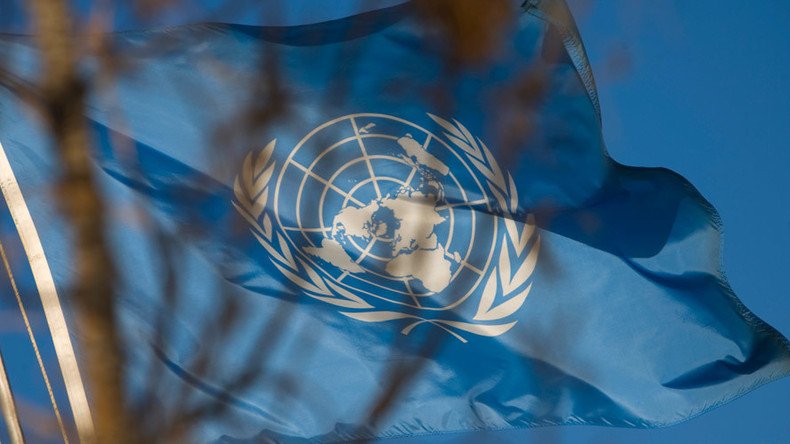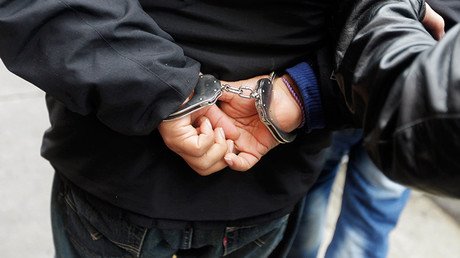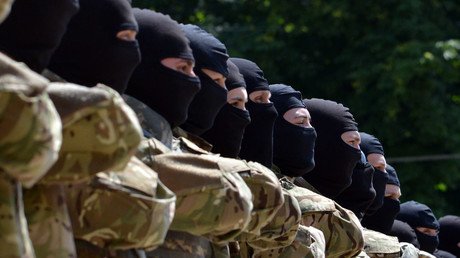UN torture prevention body to resume suspended visit to Ukraine

A group of UN torture prevention experts will return to Ukraine on Monday to undertake an inspection after its May visit was suspended because it was denied access to certain detention facilities controlled by Ukraine’s security service (SBU), UN says.
The group, consisting of three UN experts from the UK, Moldova and Croatia will visit Ukraine between September 5 and September 9, the UN Office of the High Commissioner for Human Rights (OHCHR) said in a statement.
The group, which is a delegation of the UN Subcommittee on the Prevention of Torture (SPT), will meet with Ukrainian officials and will visit places “where people may be detained, including prisons, police stations, psychiatric institutions and residential care facilities,” the statement says.
It will also examine developments in Ukraine related to the prevention of torture and ill-treatment as well as the implementation of its previous recommendations issued after another visit in 2011. The announcement of the visit follows successful talks between the SPT and Ukrainian authorities.
In May, the SPT suspended its visit to Ukraine after it was denied access to “places in several parts of the country where it suspects people are being deprived of their liberty by the Security Service of Ukraine, the SBU,” the UN body said.
The move by the Ukrainian government provoked sharp criticism from UN officials.
“This denial of access is in breach of Ukraine’s obligations as a State party to the Optional Protocol to the Convention against Torture. It has meant that we have not been able to visit some places where we have heard numerous and serious allegations that people have been detained and where torture or ill-treatment may have occurred,” Sir Malcolm Evans, head of the delegation, said.
Following the developments, the delegation concluded that the integrity of its ongoing visit had been compromised and decided to suspend it. It said that this had been the second case within which a lack of cooperation by the ruling party ad prevented the SPT from fulfilling its mandate.
“The SPT expects Ukraine to abide by its international obligations under the Optional Protocol, which it ratified in 2006. We also hope that the Government of Ukraine will enter into a constructive dialogue with us to enable the SPT to resume its visit in the near future and so work together to establish effective safeguards against the risk of torture and ill-treatment in places where people are deprived of their liberty,” Evans said.
Now, the delegation plans to draw up a complex report from its May and September visits. The SPT said will send its confidential report to the Ukrainian government encouraging Kiev to make it public. So far, Ukraine has only agreed to the publication of the report from the SPT’s 2011 visit.
In the meantime, Amnesty International and Human Rights Watch have accused Ukraine of human rights violations by saying that there are secret detention facilities on its territory. On July 21, the two NGOs published a joint report titled “You Don’t Exist: Arbitrary Detentions, Enforced Disappearances, and Torture in Eastern Ukraine”.
Upon the report’s release, representatives from the NGOs met with Ukraine’s military prosecutor and sent him a list of 16 people presumably held in the secret Kharkov detention center. Thirteen people were subsequently released from a clandestine facility run by the SBU)in Kharkov with 12 of them being in the list, presented by Amnesty and HRW.
At the same time, Ukrainian authorities continued to deny the existence of the secret detention facilities. SBU’s chief of staff, Aleksandr Tkachuk, particularly called such reports “false.” The two NGOs urged Ukrainian authorities to acknowledge the problem and conduct the investigation into the issue.
“The grotesque practice of secret detention continues to be denied by the Ukrainian authorities, but the evidence is overwhelming. The release of 13 people is welcome, but simply confirms the need to end and investigate these abuses and deliver justice to the victims,” John Dalhuisen, Amnesty International’s regional director for Europe and Central Asia, said on the organization’s website.
The two organizations also managed to interview some of the released prisoners and found out that the Ukrainian authorities did not only torture people but also went to great lengths to remove any trace of their presence so that independent monitors would not find anything.














